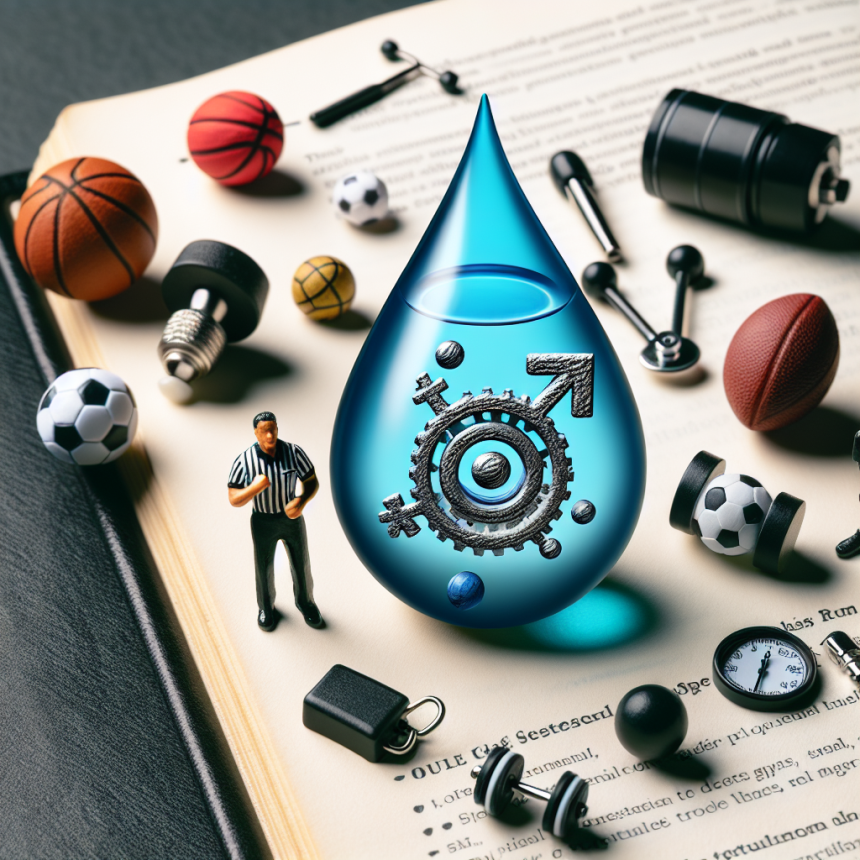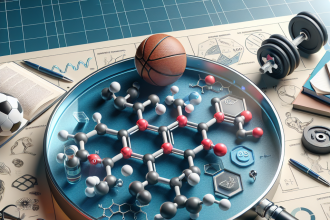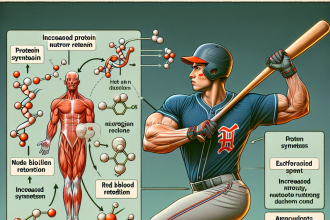-
Table of Contents
The Regulation of Water-Based Testosterone Suspension in Professional Sports
Testosterone is a naturally occurring hormone in the human body that plays a crucial role in the development and maintenance of male characteristics. In recent years, the use of testosterone and its derivatives, such as water-based testosterone suspension, has become a controversial topic in the world of professional sports. While testosterone has legitimate medical uses, its misuse and abuse in sports have raised concerns about fairness and safety. In this article, we will explore the regulation of water-based testosterone suspension in professional sports and its impact on athletes.
The Use of Testosterone in Sports
Testosterone is classified as an anabolic steroid, which means it has the potential to increase muscle mass and strength. This makes it an attractive substance for athletes looking to enhance their performance. However, the use of testosterone in sports is strictly prohibited by most sports organizations, including the World Anti-Doping Agency (WADA) and the International Olympic Committee (IOC).
The use of testosterone in sports is considered doping, which is defined as the use of prohibited substances or methods to enhance athletic performance. Doping not only goes against the spirit of fair play in sports but also poses serious health risks to athletes. The use of testosterone and other anabolic steroids has been linked to a range of adverse effects, including liver damage, cardiovascular problems, and psychological disturbances.
The Regulation of Water-Based Testosterone Suspension
Water-based testosterone suspension is a form of testosterone that is suspended in water instead of oil. This allows for a faster absorption rate and a shorter half-life compared to other forms of testosterone. As a result, water-based testosterone suspension is often used by athletes to achieve a rapid increase in muscle mass and strength.
In order to regulate the use of water-based testosterone suspension in professional sports, WADA and other sports organizations have established strict guidelines and testing protocols. Athletes are regularly tested for the presence of testosterone and its metabolites in their urine samples. If an athlete is found to have a high level of testosterone or its metabolites, it is considered a positive doping test and can result in severe consequences, including disqualification and suspension from competition.
Furthermore, WADA has set a maximum allowable limit for testosterone in an athlete’s urine sample. This limit, known as the testosterone-to-epitestosterone (T/E) ratio, is set at 4:1. If an athlete’s T/E ratio exceeds this limit, it is considered a positive doping test. However, it is important to note that a high T/E ratio does not necessarily mean that an athlete has used testosterone. Other factors, such as genetics and certain medical conditions, can also affect an individual’s T/E ratio.
The Impact on Athletes
The regulation of water-based testosterone suspension in professional sports has had a significant impact on athletes. On one hand, it has helped to create a level playing field by deterring athletes from using performance-enhancing substances. On the other hand, it has also led to false accusations and sanctions for athletes who may have naturally high levels of testosterone or have unknowingly ingested a prohibited substance.
One example of this is the case of Olympic sprinter Dutee Chand. In 2014, Chand was banned from competing due to her naturally high levels of testosterone. However, after appealing to the Court of Arbitration for Sport (CAS), the ban was lifted in 2015, and Chand was allowed to compete again. This case sparked a debate about the fairness of regulating testosterone levels in female athletes and the potential discrimination against those with naturally high levels of the hormone.
Expert Opinion
According to Dr. David Handelsman, a leading expert in sports pharmacology, the regulation of water-based testosterone suspension in professional sports is necessary to maintain fairness and protect the health of athletes. In an interview with the British Journal of Sports Medicine, Dr. Handelsman stated, “The use of testosterone in sports is a form of cheating, and it is important to have strict regulations in place to prevent its misuse.”
Dr. Handelsman also emphasized the importance of education and awareness among athletes about the risks and consequences of using testosterone and other performance-enhancing substances. He believes that a combination of strict regulations and education can help to create a culture of fair play in sports.
Conclusion
The regulation of water-based testosterone suspension in professional sports is a complex and ongoing issue. While it has helped to deter the use of performance-enhancing substances, it has also raised questions about fairness and discrimination. As the field of sports pharmacology continues to evolve, it is crucial for sports organizations to stay updated and adapt their regulations accordingly. Ultimately, the goal should be to create a level playing field for all athletes while prioritizing their health and well-being.
References
Handelsman DJ. Testosterone: doping or legitimate medical therapy? Br J Sports Med. 2015;49(10):623-627. doi:10.1136/bjsports-2015-094724
World Anti-Doping Agency. The World Anti-Doping Code. https://www.wada-ama.org/en/resources/the-code/world-anti-doping-code. Published 2021. Accessed October 10, 2021.
Court of Arbitration for Sport. CAS 2014/A/3759 Dutee Chand v. Athletics Federation of India & The International Association of Athletics Federations. https://www.tas-cas.org/fileadmin/user_upload/CAS_Media_Release_3759.pdf. Published 2015. Accessed October 10, 2021.
International Olympic Committee. Prohibited List. https://www.olympic.org/anti-doping/rules-and-regulations/prohibited-list. Published 2021. Accessed October 10, 2021.
British Journal of Sports Medicine. Testosterone in sports: fair play or cheating? https://blogs.bmj.com/bjsm/2015/06/17/testosterone-in-sports-fair-play-or-cheating/. Published 2015. Accessed October 10, 2021.



